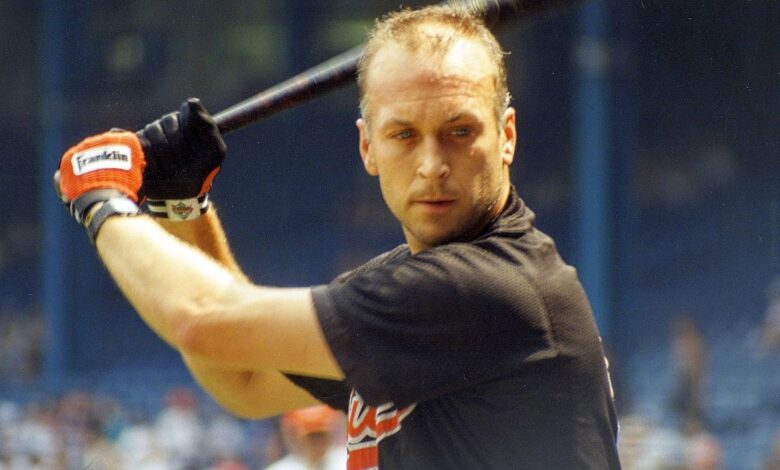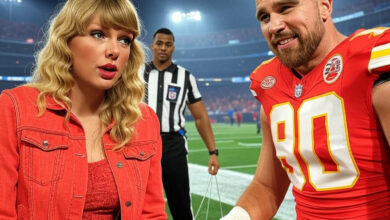Why Cal Ripken Jr. Is the Most Overrated Baseball Player of All Time

Why Cal Ripken Jr. Is the Most Overrated Baseball Player of All Time
Cal Ripken Jr., affectionately known as “The Iron Man,” is celebrated for his remarkable achievement of playing 2,632 consecutive games, a record that eclipsed Lou Gehrig’s long-standing streak. While this feat is undeniably impressive, it has arguably overshadowed a more critical assessment of Ripken’s overall contributions on the field. Here are several reasons why Cal Ripken Jr. might be considered the most overrated baseball player of all time, along with a discussion of other players who are often similarly overrated.
The Streak Overshadows Performance Metrics
The consecutive games played streak is often cited as Ripken’s crowning achievement, but it doesn’t necessarily equate to elite performance. While durability is valuable, it should not be the sole metric by which a player’s greatness is measured. Many fans and analysts focus so heavily on the streak that they overlook Ripken’s more pedestrian statistics in other areas. His career batting average of .276, while respectable, is not extraordinary, and his on-base percentage (.340) and slugging percentage (.447) are similarly unremarkable when compared to other Hall of Famers.
Inconsistent Offensive Production
Throughout his 21-year career, Ripken had some standout seasons, including two MVP awards in 1983 and 1991. However, his offensive production was inconsistent. For instance, he only surpassed 30 home runs in a season twice and had just four seasons with a batting average over .300. In contrast, contemporaries like Tony Gwynn and Wade Boggs consistently put up higher batting averages and on-base percentages, demonstrating more reliable offensive output. Ripken’s overall offensive metrics suggest that while he was a good hitter, he was not consistently great.
Defensive Contributions: Good but Not Great
Ripken was a solid shortstop, earning two Gold Glove awards, but his range and fielding metrics don’t stack up against some of his peers. Players like Ozzie Smith, who redefined the shortstop position with their defensive prowess, often overshadow Ripken in terms of pure defensive skill. Ripken’s defensive Wins Above Replacement (WAR) is positive, but it doesn’t place him among the elite defenders in the history of the game. His reputation as a reliable defender sometimes glosses over the fact that his range and agility were not as exceptional as those of the very best at the position.
Longevity vs. Peak Performance
Ripken’s career longevity is often highlighted, but longevity can sometimes mask a lack of peak performance. Players like Sandy Koufax, who had shorter but more dominant careers, are often rated higher because of their extraordinary peak years. Ripken’s consistent presence in the lineup is admirable, but it came with many seasons where he was merely above average rather than exceptional. His durability and ability to stay healthy and in the lineup are commendable, but they do not necessarily indicate that he was performing at an elite level throughout his career.
Team Success and Individual Impact
Despite Ripken’s presence, the Baltimore Orioles experienced limited team success during his career. The Orioles won the World Series in 1983, but they spent much of the following years as a middling team. While baseball is undoubtedly a team sport, and individual success doesn’t always translate to team victories, truly transcendent players often have a more significant impact on their teams’ fortunes. Ripken’s ability to influence games consistently and lift his team to greater heights is questionable when considering the overall performance of the Orioles during his tenure.
Comparison to Contemporaries
When compared to his contemporaries, Ripken’s stats don’t always hold up. For example, his career WAR (Wins Above Replacement) is 95.9, which, while impressive, is lower than peers like Barry Bonds (162.7), Roger Clemens (139.2), and Greg Maddux (104.8). These players not only had longer streaks of dominance but also contributed to their teams’ success in more measurable ways. Ripken’s contributions, while significant, often pale in comparison to those of players who consistently performed at higher levels and had greater impacts on their teams.
Other Overrated Players
Ripken is not alone in being considered overrated. Several other players, often lauded for specific aspects of their careers, might also be seen as overrated when viewed through a more critical lens.
Derek Jeter
Derek Jeter, like Ripken, is celebrated for his durability and leadership. Jeter amassed over 3,000 hits and five World Series titles, making him a beloved figure in New York and a first-ballot Hall of Famer. However, his defensive metrics tell a different story. Jeter’s range at shortstop was often criticized, and advanced statistics like Defensive Runs Saved (DRS) and Ultimate Zone Rating (UZR) suggest he was below average defensively for much of his career. While Jeter’s offensive numbers are solid, his mythos often overshadows these defensive shortcomings and his relatively low power output for a player of his stature.
Pete Rose
Pete Rose is another player whose reputation might be inflated. Rose is the all-time leader in hits, which is a significant accomplishment. However, his career on-base percentage (.375) and slugging percentage (.409) are not as impressive when compared to other Hall of Famers. Additionally, Rose’s off-field controversies, including his lifetime ban for gambling on baseball, add a layer of complexity to his legacy. While his hustle and durability are commendable, his overall impact on the game is often overstated.
Nolan Ryan
Nolan Ryan, known for his record seven no-hitters and over 5,000 strikeouts, is another player whose reputation might exceed his actual performance. Ryan’s career ERA of 3.19 is very good, but not elite, and his career WHIP (walks plus hits per inning pitched) of 1.247 is indicative of his control issues. Ryan also never won a Cy Young Award and had a relatively modest career win-loss record (324-292). His dominance in strikeouts and no-hitters often overshadows his inconsistency and lack of control, which prevented him from being as effective as some of his contemporaries.
Conclusion
Cal Ripken Jr.’s legacy is largely built on the foundation of his consecutive games played streak, a testament to his durability and dedication to the game. However, when evaluating his overall performance, it becomes evident that Ripken may not belong in the pantheon of baseball’s greatest players. His offensive inconsistencies, solid but unspectacular defensive play, and lack of peak performance seasons suggest that he may be one of the most overrated players in the sport’s history. While his contributions to the game should not be dismissed, a more critical analysis reveals that Ripken’s legend may have outstripped his actual achievements on the diamond.
Similarly, players like Derek Jeter, Pete Rose, and Nolan Ryan have aspects of their careers that, when examined more closely, reveal that their reputations might be inflated relative to their actual contributions. These players, celebrated for specific achievements or traits, highlight the complexity of evaluating greatness in baseball, where myths and narratives often overshadow a more nuanced understanding of performance.




